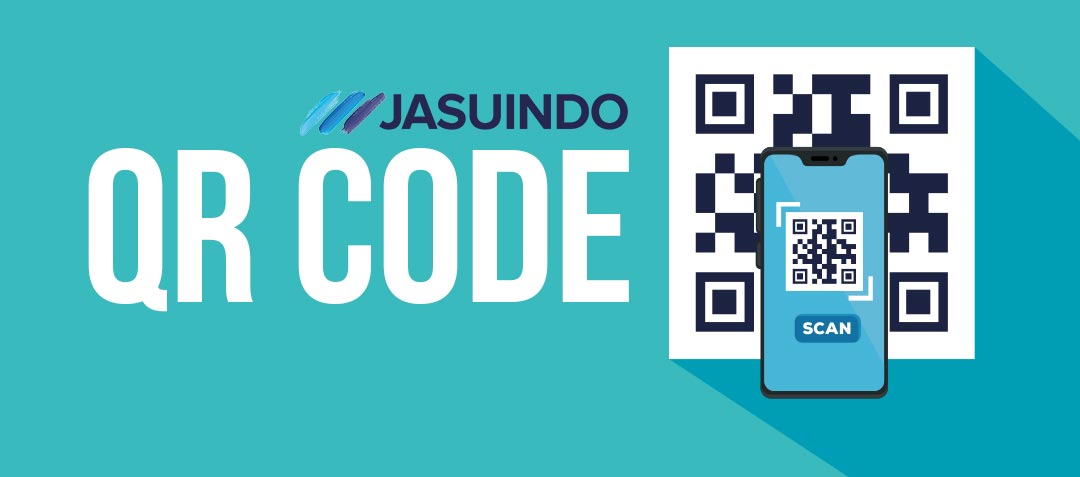
Understanding QR Codes: Functions, Components, Types, and Applications
QR Codes have become a widely adopted technology across various industries, from digital payments to product tracking. Capable of storing information in a two-dimensional format, QR Codes enable instant access with a simple scan using a smartphone or dedicated scanner.
As a company specializing in document security and advanced printing solutions, Jasuindo integrates secure QR Code technology into its innovative offerings. With built-in security features, Jasuindo’s QR Codes provide a trusted solution for safeguarding data while ensuring seamless accessibility.
What is a QR Code?
A Quick Response (QR) Code is a two-dimensional matrix barcode capable of storing various types of data, including URLs, text, contact details, and payment information. Composed of black and white squares, QR Codes are designed for rapid scanning using smartphones or specialized scanners.
As a provider of document security and printing solutions, Jasuindo leverages QR Code technology to enhance secure identification and tracking systems. Beyond facilitating quick data access, QR Codes also improve security across multiple applications.
Key Functions of QR Codes
QR Codes serve diverse functions, delivering significant benefits across industries. Key applications include:
1. Data Storage
Compact storage for website links, contact details, or usage instructions, enabling instant access.
2. Digital Payments
A secure, cashless transaction method in financial services via QR-based mobile payments.
3. Product Tracking
Jasuindo’s QR solutions enable authenticity verification and supply chain monitoring.
4. Security & Verification
Protects certificates, tickets, and security labels against counterfeiting with instant validation.
5. Customer Engagement
Enhances interaction through loyalty programs, surveys, or direct app/site links.
6. Supplementary Information
Provides product manuals, tutorials, or specifications via scan.
7. Marketing & Promotions
Directs users to promotional content, contests, coupon or product details.
8. Wi-Fi Connectivity
Allows instant network access without manual password entry.
Components of a QR Code
A QR Code comprises several elements ensuring accurate scanning:
1.Positioning Markers (Corners) – Facilitates quick recognition from any angle.

2. Alignment Markers – Maintains scan accuracy on curved or distorted surfaces.

3. Timing Pattern – Black-and-white modules that synchronize data structure.

4. Version Information – Indicates QR Code version and data capacity.

5. Format Data – Specifies error correction level and masking pattern.

6. Data & Error Correction Keys – Ensures readability even if partially damaged.

7. Quiet Zone – Blank border distinguishing the QR Code from surrounding visuals.

*(Source: qr-code-generator.com)*
Types of QR Codes
QR Codes are categorized into two types based on functionality:
-
Static QR Codes
– Store unchangeable data (e.g., fixed URLs, contact info).
– Ideal for permanent information.
-
Dynamic QR Codes
– Allow real-time updates without altering the physical code.
– Used in marketing campaigns, product tracking, or time-sensitive promotions.
Industry Applications
QR Codes are versatile tools applied across sectors, including:
– Banking: Cashless payments via mobile banking/e-wallets.
– Retail: Digital catalogs, promotional codes, and price tags.
– Logistics & Manufacturing: Supply chain and inventory tracking.
– Travel & Entertainment: E-tickets for events and attractions.
– Education: Quick access to digital learning materials.
– Healthcare: Vaccine certificates and digital medical records.
Conclusion
Jasuindo delivers high-security QR Code solutions with advanced printing technology, ensuring data integrity and user convenience. Our integrated security features make QR Codes ideal for:
✔ Product authentication
✔ Document verification
✔ Digital payment systems
For tailored QR Code solutions or consultations, contact Jasuindo’s team to implement optimized security systems for your business needs.
